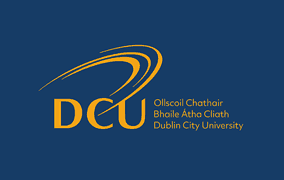Call for Submissions
Panel: Corpus-based Translation Studies – innovations in the new digital age
Convened by Marion Winters and Sofia Malamatidou
http://www.iatis.org/index.php/iatis-belo-horizonte-conference/item/1004-panel-20
For the 2015 conference of the International Association for Translation & Intercultural Studies, Belo Horizonte, Brazil, 7-10 July 2015
Modality of Submission: Please note that individual contributions to panels must be submitted through the START Management Conference System (https://www.softconf.com/f/iatis2015/) before the 1st of August 2014.
Absolutely Non-negotiable Deadline for Submission of Abstracts (max. 500 words): 1st August 2014
Panel Outline: Corpus-based Translation Studies (CTS) has developed into a major paradigm in Translation Studies, ever since they were first introduced to the field some twenty years ago. Corpora are now used as CAT tools, in machine translation and translation memories, as well as in translator training. The application of corpus methodologies has allowed a better understanding of the nature of translated texts and their relationship to non-translated productions, offering new insights into the translation process and translator behaviour and style and moving the discipline of Translation Studies forward. As a field of study, CTS is truly inter-disciplinary, closely informed by developments in a range of related fields, such as corpus linguistics and computational linguistics. Research in those fields has recently seen great progress, offering the potential of exploring new and more complex types of corpora, such as multimodal corpora, while at the same time developing new means for corpus interrogation, together with new tools and techniques of analysis. If CTS is to expand its methods and applications, new technological advancements need to be fully embraced and new tools need to be developed. This needs to be in collaboration with other disciplines, since Translation Studies scholars often do not have the expertise to adapt tools to their needs or develop new ones, while computational linguists are often unaware of the needs of Translation Studies scholars. Similarly, maintaining a constructive dialogue with corpus linguistics will inform practices and offer the necessary theoretical insights. This panel aims to bring together the linguistic and computational side of corpus methodologies to discuss innovations in corpus analysis tools and annotation methods, accessibility issues etc. with particular reference to translation, and provide a framework for collaboration and technological development in CTS to open up further avenues of research in this field.
The panel will be framed by a 15-minute introduction and wrap-up session and consist of twelve speakers who will be grouped in sessions of three according to their papers’ topics. The panel welcomes papers related but not limited to the following topics:
– new applications of corpora to translation research and training
– new methodologies, such as NLP-oriented or forensic-oriented, as well as combined corpus-based methodologies
– annotation standards and formats (including audiovisual material)
– alignment, concordancing and text analysis tools
– multimodal corpora and their applications in CTS
– corpus design and corpus compilation techniques
– corpus construction software
– approaches to quantitative and qualitative corpus analysis
– accessibility issues (including maintenance, copyright and corpus-sharing)
– metadata description with particular reference to multimodal corpora
– corpus visualisation, including interactive tools

